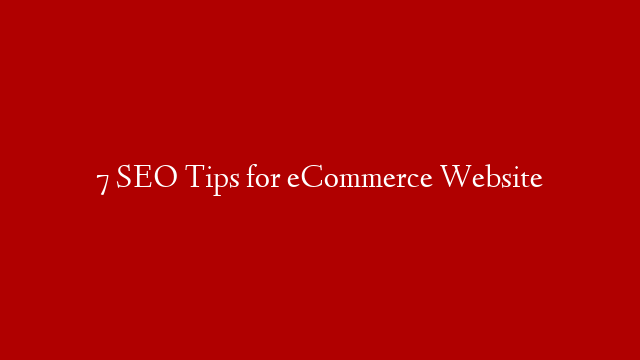Whether we speak of old school shopping or the new in town eCommerce wave, the only way customers can reach the place of business is if they can locate the store easily.
Internet thrives on search. Millions of search strings make their way into the internet ecosystem each day. There’s no point in spending money on a fancy website and stocking up on best products at awesome prices if your site isn’t featuring on the first page in Google.
That is where SEO efforts come into the picture. People are more likely to find you, if you have a higher search rank. And the more traffic, higher the probability of making sale.
When it comes to SEO for an online shop, “one size fits all” strategy does not work. Online shopping websites need to carefully assess the needs of their business and plan accordingly. Here are a few tips to help towards making that all-important decision.
The effective keywords
Invest some time and money to identify the most appropriate keywords for your online store. Users tend to be very specific while doing a keyword search. Ensure that the keywords used in your online shopping website’s SEO aren’t too generic. Or else, visitors simply won’t be able to find you.
No duplicate content
Be as original as possible in your product descriptions tags. That’s probably the most important step in eCommerce SEO. Since content duplication in eCommerce stores is inevitable with product descriptions and lists, it is advisable to look for ways to reduce redundancy.
Don’t copy-paste the manufacturer’s product description, take some time to build your own. It may give you a mild headache, but it will save you a migraine later. Ensure that each product description is unique and search engine friendly.
Pay Per Click
Pay per click is the necessary tool in the SEO of online shops. However, it is advisable to not rely on it entirely to create visibility. PPC costs continue to rise with each search and as soon as you stop paying for placement, your online presence disappears. Some customers do not trust sponsored links, banners, and other ads. Therefore, organic SEO is essential along with PPC for online shopping website to improve visibility.
Strengthen your content strategy
Keep adding unique and high quality content regularly to your eCommerce Portal. It will help with your search engine ranking, and an added value for users. Consider having a blog and add relevant content that’s related to products and services on your website.
Optimize images
Use ALT tags liberally on your website. Image search function has gained a lot of popularity and people are using it to find products. Your eCommerce SEO strategy needs to incorporate related keywords for ALT tags of every image on the website. Don’t stuff keywords; ensure that every keyword used is directly relevant.
Meta descriptions for webpages
For onsite eCommerce SEO, use a different meta descriptions for each page. Meta descriptions are written for humans with the purpose of helping to get visitors to your online store once it shows up in search engines.
Remember to optimize anchor text
Use keywords for internal links on your website. This will help enhance your visibility in search engines. Consider doing the same for product descriptions by linking them to other similar products on your website.


